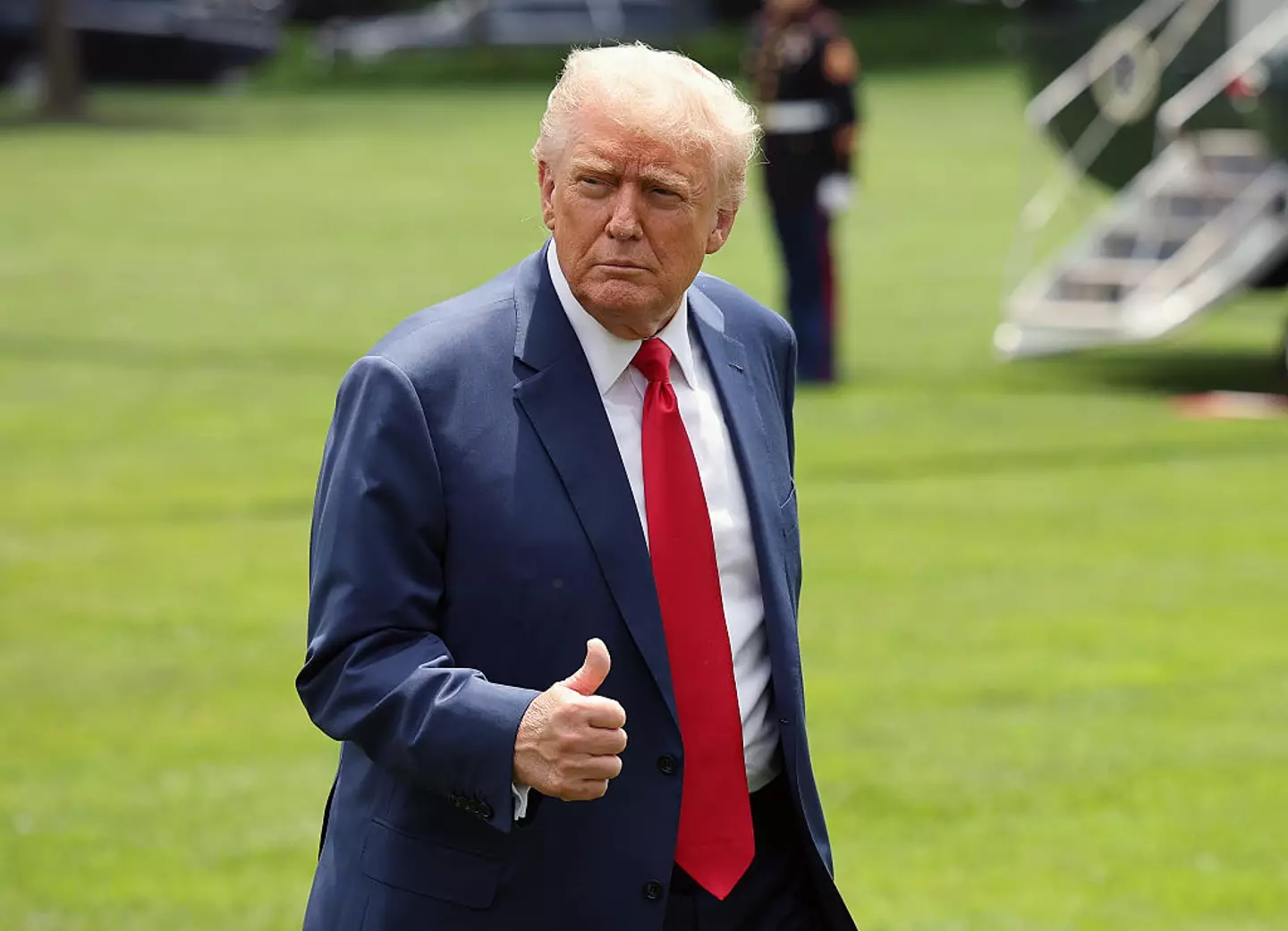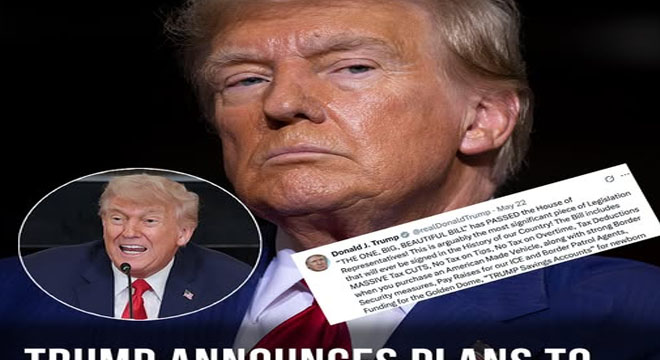US President Donald Trump has announced plans to give everyone $1,000 if they were born between two set years as he expands his plans around his ‘big, beautiful bill’.
On Monday (9 June), Trump announced a new scheme which will provide $1,000 government-funded investment accounts for American babies born in specific years.
Dubbed the ‘Trump accounts’, the president announced the move at the White House, explaining that the accounts will ‘track the overall stock market’.
It forms part of his plans for his ‘big, beautiful bill’ which appeared to set off a riftbetween him and his former ‘First Buddy’ Elon Musk, who slammed the proposed legislation, saying it will undo all his work at the Department of Government Efficiency (DOGE).
“These accounts will be private property controlled by the child’s guardians.”
The president referred to the accounts – which allow personal contributions of up to $5,000 each year – a ‘pro-family initiative that will help millions of Americans harness the strength of our economy to lift up the next generation’.
Meanwhile, House speaker Mike Johnson said: “It’s a bold, transformative policy that gives every eligible American child a financial head start from day one. Republicans are proud to be the party we always have been.
“It supports life and families, prosperity and opportunity.”
However, there’s a bit of a catch.


Trump announced his plans for the $1,000 account (Win McNamee/Getty Images)
The move would hinge on Trump’s controversial ‘big, beautiful bill’ being approved, which still has to go to the Senate.
What is Trump’s ‘big, beautiful bill’?
Last month, the House launched a debate on Trump’s so-called ‘big, beautiful bill’ and was passed through by a single vote with Democrats staunchly opposed to it.
The proposed law includes a raft of tax cuts, including no taxes on tips for workers in the service and beauty industries and a freeze on taxes on those working overtime, all while redirecting funds to military and border security.
It would also pave the way for tax deductions on up to $10,000 in interest on auto loans for cars made on US soil and $200 taxes on gun silencers.
However, it’s touted as a temporary exemption that will come to an end in 2028 – or 2029 for the car loan interest deal.
Also on the bill is a $500 hike in child tax credit, totalling $2,500 through to 2028, and controversial changes to Medicaid and SNAP food stamp benefits to make up for scores of the lost tax revenue.
As President, I must act to protect the national security and national interest of the United States and its people,” he added.
Trump continued to argue that America must ensure that those coming into the country don’t have ‘hostile attitudes toward its citizens, culture, government, institutions, or founding principles’, Sky News says.
The 12 nations included in the order are: Afghanistan, Myanmar, Chad, Republic of the Congo, Equatorial Guinea, Eritrea, Haiti, Iran, Libya, Somalia, Sudan and Yemen.
The Trump administration will ‘partially restrict and limit the entry of nationals’ from Burundi, Cuba, Laos, Sierra Leone, Togo, Turkmenistan, and Venezuela as well.
With the date of the ban looming, as per usual, Trump said he’s willing to negotiate with the countries listed.
He described himself as being ‘committed to engaging with those countries willing to cooperate to improve information-sharing and identity-management procedures, and to address both terrorism-related and public-safety risks’, as per New York Post.
Some people are except from the ban, however, these include athletes traveling for major sporting events, those with ‘immigrant visas for ethnic and religious minorities facing persecution in Iran’, Afghan nationals holding Special Immigrant Visas, lawful permanent residents of the US, and dual nationals who have citizenship in countries not included in the travel ban, the BBC explained.
As expected, Trump’s new order has created some backlash as Rep. Pramila Jayapal, the former chair of Congressional Progressive Caucus, branded the ban as ‘dangerous’.
She said on Twitter: “This ban, expanded from Trump’s Muslim ban in his first term, will only further isolate us on the world stage.”
“This discriminatory policy, which limits legal immigration, not only flies in the face of what our country is supposed to stand for, it will be harmful to our economy and our communities that rely on the contributions of people who come to America from this wide range of countries,” Jayapal continued.Featured Image Credit: Francis Chung/Politico/Bloomberg via Getty Image
